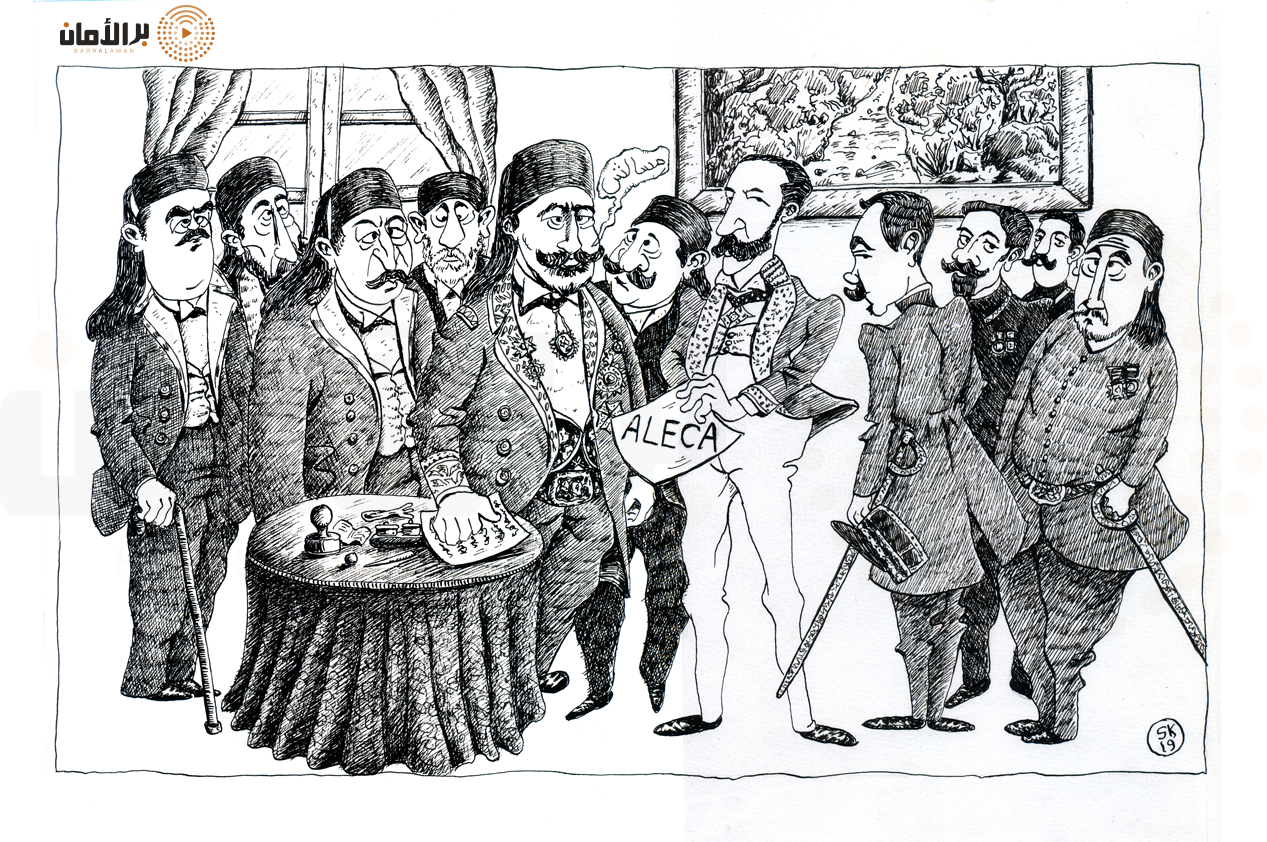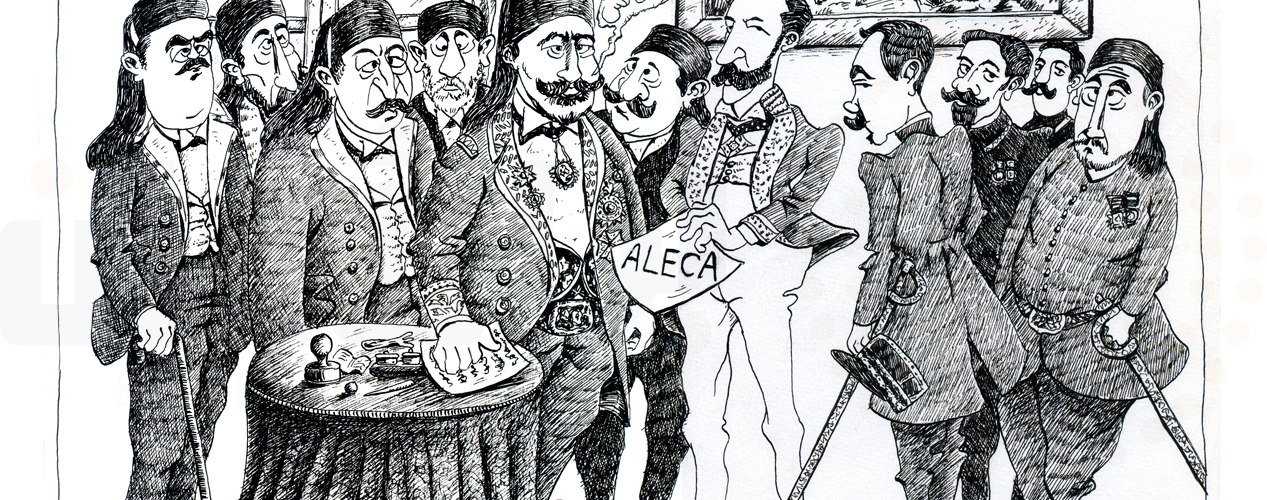The question of what Tunisia wants out of the ALECA negotiations is something that cannot be answered if we do not answer some more fundamental questions regarding what, who and where Tunisia is, and more importantly how different parties imagine its future, both domestically and as part of the international community. In pursuit of an answer to these questions, amongst these voices certain patterns emerge that reflect a particular imbalance in the representation and the use of the fears and desires belonging to the different stakeholders. More specifically, the position of the opposing parties seems to be largely framed under “fear”, a position that is used to then question and criticise the supposedly flawed desires of the Tunisian authorities and the EU.
This imbalance can have important consequences not just for the opposition to these particular negotiations but also for the future of socio-economic governance within Tunisia. In the story of ALECA it seems like the opposition is doing the fearing and the government and the pro-ALECA camp is doing the desiring. I acknowledge the differences between the groups and institutions opposing ALECA. However, it is exactly within the context of this difference that we can seek a positive conversation that unites them not just against ALECA but for a feasible alternative of economic organisation. The existence of ALECA and the resulted groupings can be seen as the first step.

Fear
Fear, anger and mistrust, and a general feeling of not being heard, are incredibly powerful sentiments that seem to be omnipresent around ALECA. It is in this context that a wide range of Tunisian civil society actors and associations are going so far as calling for the whole convention/negotiation to be cancelled (for instance with the newly launched “Block ALECA/مجموعة التصدّي للاليكا” mobilisation) or at least postponed (as seen in UTAP’s rejection of the ALECA proposals as they currently stand).
People who are arguing against ALECA have a number of very real fears. There is a clear and loud voice of critics, backed by numerous studies, that the negative consequences of signing ALECA as it stands seem to outweigh the positive effects. They are worried about the potentially disastrous impact of this agreement on the livelihood of people across the country and the worsening of the already problematic economic conditions especially amongst the weak and often marginalised farming communities. Some farmers are going as far as calling these times as “the last days of agriculture in Tunisia” (Zied Ben Yousef, interviewed by Middle East Eye). On a macro scale, there is a real worry about further loss of economic sovereignty for Tunisia especially in the current context of debt dependence and conditional financing already imposed by national and international creditors. Furthermore, important topics such as access to medicine and its impact on health have been raised by multiple commentators.
A part of civil society activists against or distrusting of ALECA, are largely against the idea of free trade and the opening up of markets as the sine qua non of the social and economic development of Tunisia. Some others rightly point out the potentially “skewed” nature of the “trade game” under the current understanding of ALECA. Yet, not all free trade arrangements/agreements seem to create the same reaction from them. For instance, on the 29 March 2019, the Tunisian parliament ratified the agreement that allows Tunisia to join the Common Market for Eastern and Southern Africa (COMESA). The accession of Tunisia to this multilateral “club” was long in the making and a lot of resources and time went into it. Yet as was made clear in my multiple conversations with activists, the accession of Tunisia to COMESA is not even seen as an issue. This is despite the fact that according to reports, some MPs voted for ratification of the treaty without reading the text of the agreement, which incidentally is not even available upon request from the Ministry of Trade. In other words neither the authorities nor the civil society activists don’t seem to be fearful of it and as a result there is very little to no engagement with it.
It is understandable that the size of this market in terms of the monetary value of internal and external trade and the potential impact of this agreement on the Tunisian economy (at least in the short term) is much less than the potential and perceived impact of ALECA. Additionally, the history that characterises the relationship between Tunisia and Europe is dramatically different. So are the power dynamics between the two parties. Yet the lack of conversation about this agreement seems rather disproportional and is reflective of the centrality of fear in determining the discourse of anti-ALECA activism.
Given the fact that ALECA is part of EU’s wider current offensive commercial strategy regarding its neighbouring countries, is there simply the fear amongst the Tunisian authorities that this is a “once in a lifetime” chance of finalising what they started in 1995 and to achieve as close an economic partnership with the EU as possible? How about the fear of Tunisian authorities regarding further marginalisation of politically sensitive parts of the population (a great proportion of whom are small farmers and were instrumental in the “Dignity Revolution” of 2011)? Or could the government also be acting out of the fear of losing the fragile “balance” between obligations towards the (national and multilateral) providers of conditional financing and strong domestic forces such as the UGTT and UTAP who are resisting austerity measures imposed as credit conditions?
Desire
The international economic order consists of numerous groupings or “clubs” that, especially since 1990s, are largely centred around the idea of free trade achieved through structural and regulatory ‘alignments’ for member states (e.g. Regional Comprehensive Economic Partnership (RCEP), Trans-Pacific Partnership (TPP), and Trans-Atlantic Trade and Investment Partnership (TTIP) and COMESA). By signing ALECA, Tunisian authorities are fulfilling their desire to join a controversial ‘club’, the benefits of which for the country are highly questionable.
Despite the existence of voices opposed to or critical of ALECA, we can observe a clear insistence by the authorities to go ahead with the negotiations, even though they seem to reassure the opposition that “there is still no commitment from the Tunisian side” regarding controversial areas such as Agriculture (Halim Guesmi, representative of the Ministry of Agriculture and Fisheries). Additionally, and increasingly, there are legislative movements in the parliament passing laws which practically incorporate into law, controversial sections of ALECA regarding non-tariff barriers to trade such as SPS ( قانون السلامة الصحية للمواد الغذائية وأغذية الحيوانات, Feb 2019) and intellectual property (the patent “validation agreement” of 2014, in force since December 2017).
Whether one belongs to the camp of ‘neo-liberal’ apologists of boundless international free trade, or a critic armed with arguments of ‘political-economy’, one’s (public) position (at least rhetorically) regarding ALECA comes down to one point: would it improve or deteriorate the lives of people in Tunisia? Would the public be better off as a result of the measures, commitments and assurances enshrined in this potential agreement or not? In other words is it in line with the social, economic, and political desires of the multiple stakeholders. The economic status quo in Tunisia is certainly not desirable for the opposition to ALECA. Neither are the emerging consequences of the negotiated deal. Even though some amongst the multiplicity of opposing voices have occasionally proposed measures or considerations for the negotiation teams towards damage control, the more radical opponents of ALECA tend to engage in a largely negative discourse and their preferred economic models are not present as such in the debates.
Is our desire to join certain clubs only to do with the material or economic gain/loss that we get out of them? Or do things like history, politics and self-image (and of the “others”) have a role in them? Are questions of who we want to be, or how we want to live our lives come in this formula? If yes, then who is doing this desiring and what exactly is being desired?



اضف تعليق